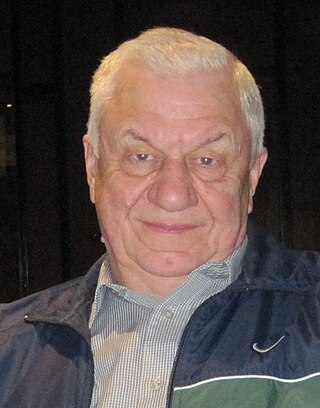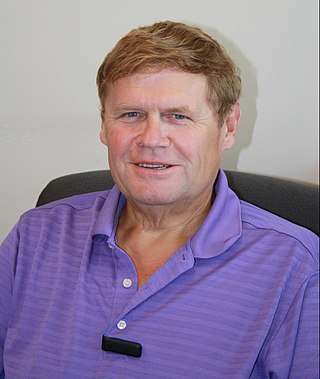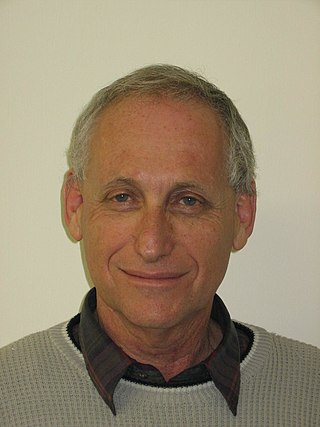Related Research Articles
The Chartered Institute of Ergonomics and Human Factors is a United Kingdom-based professional society for ergonomists, human factors specialists, and those involved in user-centred design.
Sir Hermenegildo Balbino Tantoco Reyes, KGCR co-founded the University of the East, was a Boy Scouts of the Philippines Scouting notable, Filipino educator, lawyer, mechanical and electrical engineer. Reyes served on the World Scout Committee of the World Organization of the Scout Movement from 1961 to 1967.
Gary Klein is a research psychologist famous for pioneering in the field of naturalistic decision making. By studying experts such as firefighters in their natural environment, he discovered that laboratory models could not adequately describe decision making under time pressure and uncertainty. His recognition-primed decision (RPD) model has influenced changes in the ways the Marines and Army train their officers to make decisions. The concept of expertise has been central to the models he has developed, the research he has conducted, and the training and design efforts he has accomplished.
M. M. Ayoub is an Egyptian retired P.W. Horn Professor of Industrial Engineering at Texas Tech University. He is a pioneer in the field of ergonomics, specifically relating to the application of mechanics to manual material handling.

Tihomir Atanassov Dovramadjiev, also known as Tihomir Tishko and as TigerTAD on the Playchess server, is a Bulgarian chess FIDE master and chess boxer. He became the first European chess boxing champion from Berlin, Germany, in 2005. with both World Chess Boxing Organisation - WCBO and World Chess Boxing Association - WCBA acknowledgments. He has held the International Chess Federation - FIDE title of FIDE master since 2004. Currently, he holds the position of associate professor in the Department of Industrial Design at the Technical University of Varna.
Engineering psychology, also known as Human Factors Engineering or Human Factors Psychology, is the science of human behavior and capability, applied to the design and operation of systems and technology. As an applied field of psychology and an interdisciplinary part of ergonomics, it aims to improve the relationships between people and machines by redesigning equipment, interactions, or the environment in which they take place. The work of an engineering psychologist is often described as making the relationship more "user-friendly."
Chester Willard "Chet" Newton was an Olympic wrestler for the United States. He won a silver medal in the featherweight division at the 1924 Summer Olympics in Paris, France, losing only to fellow Oregon State University alumnus and teammate Robin Reed in the finals. Reed was also the only man to defeat Newton at the Olympic Trials in New York.
Toby Berger was an American information theorist.
Dylan Schmorrow is an American scientist and retired United States Defense Official. He is currently the chief scientist at Soar Technology, Inc.. He is a retired US Navy captain, and served as the deputy director of the Human Performance, Training, and BioSystems Research Directorate at the Office of the Assistant Secretary of Defense, Research & Engineering at Office of the Secretary of Defense. He was also specialty leader of the Aerospace Experimental Psychologist community and an acquisition professional in the Naval Acquisition Corps.
Systems psychology is a branch of both theoretical psychology and applied psychology that studies human behaviour and experience as complex systems. It is inspired by systems theory and systems thinking, and based on the theoretical work of Roger Barker, Gregory Bateson, Humberto Maturana and others. Groups and individuals are considered as systems in homeostasis. Alternative terms here are "systemic psychology", "systems behavior", and "systems-based psychology".

Industrial engineering is an engineering profession that is concerned with the optimization of complex processes, systems, or organizations by developing, improving and implementing integrated systems of people, money, knowledge, information and equipment. Industrial engineering is central to manufacturing operations.
Anthony D. Andre is a researcher, practitioner, and academic in the fields of human factors, ergonomics, usability and product design. He is the founding principal of Interface Analysis Associates, an international human factors and ergonomics consultancy. Andre pioneered the behavioral approach to ergonomics which included behavior modification and computer skill development as its basis, in direct opposition to common product-based approaches. He is a founding member and adjunct professor of the HF/E Graduate Program at San Jose State University. He founded the International Conference on Human Factors and Ergonomics in Health Care, co-created the Ergo-X conference, managed the ergonomic content for several of the annual California Association of Rehabilitation and Re-employment Professionals (CARRP) conferences, and recently produced, hosted, and presented a COVID-19 ergonomics virtual summit on how to work/school from home more safely and comfortably. He has served as president of the Human Factors and Ergonomics Society. Andre is a Certified Professional Ergonomist (CPE), recognized by the Board of Certification of Professional Ergonomists (BCPE).

Ergonomics, also known as human factors or human factors engineering (HFE), is the application of psychological and physiological principles to the engineering and design of products, processes, and systems. Primary goals of human factors engineering are to reduce human error, increase productivity and system availability, and enhance safety, health and comfort with a specific focus on the interaction between the human and equipment.
David Shinar is one of the most prominent and productive researchers in the area of traffic safety, and a professor emeritus at Ben-Gurion University of the Negev, Israel.
Neville Moray was a British-born Canadian psychologist. He served as an academic and professor at the Department of Psychology of the University of Surrey, known from his 1959 research of the cocktail party effect.

Valerii Fedorovich Venda is a Soviet and Russian psychologist, engineer, and designer. His main research areas are perception and cognition, the connection (attachment) between anatomical (structural) perceptual information and complex thoughts, which includes, problem solving; the process of mutual adaptation and transitions in general systems theory, the psychology of engineering and ergonomics; systems of hybrid intellect, and ergodynamics.

Peter Adrian Hancock is a British-American scientist of human factors and ergonomics, author, and expert witness. He is a Provost Distinguished Research Professor in the Department of Psychology and the Institute for Simulation and Training, as well as the Department of Civil and Environmental Engineering and the Department of Industrial Engineering and Management Systems at the University of Central Florida. He is the research director of the Minds in Technology−Machines in Thought research laboratory at the University of Central Florida.
Nadine Barbara Sarter is a German-American industrial engineer interested in multimodal interaction, touch user interfaces, aircraft cockpit controls, and the ergonomics of human-machine interfaces. She is Richard W. Pew Collegiate Professor of Industrial & Operations Engineering at the University of Michigan, where she directs the Center for Ergonomics and is also affiliated with the Robotics Institute and Department of Aerospace Engineering.

Daniel Gopher is a professor (Emeritus) of Cognitive psychology and Human Factors Engineering at the Faculty of Industrial Engineering and Management, Technion - Israel Institute of Technology. He held the Yigal Alon Chair for the Study of Humans at Work at the Technion. Gopher is a fellow of the Human Factors and Ergonomics Society, the Psychonomic Society and the International Ergonomics Association.
References
- ↑ "Orchids to: Cornell Sigma Pi" (PDF). The Emerald of Sigma Pi. Vol. 43, no. 1. May 1956. p. 27. Archived from the original on November 11, 2016.
{{cite magazine}}: CS1 maint: unfit URL (link) - ↑ "HFES Fellow profile" (PDF). Human Factors and Ergonomics Society.
- ↑ Evans, Hilary; Gjerde, Arild; Heijmans, Jeroen; Mallon, Bill; et al. "Richard Pew". Olympics at Sports-Reference.com. Sports Reference LLC. Archived from the original on June 29, 2017. Retrieved October 22, 2010.